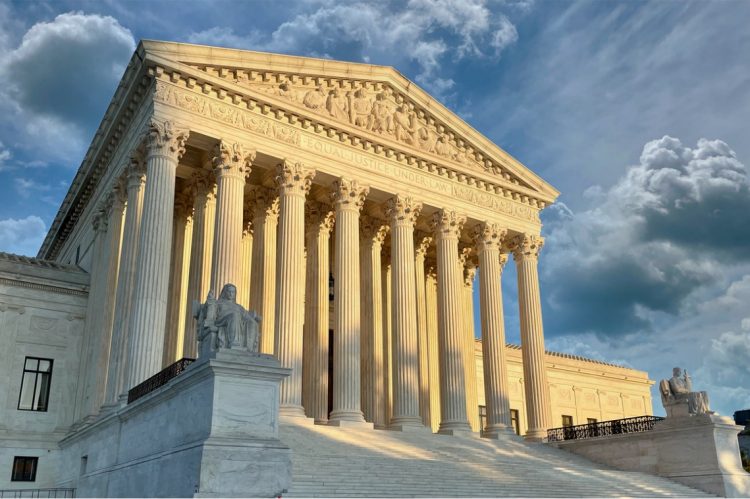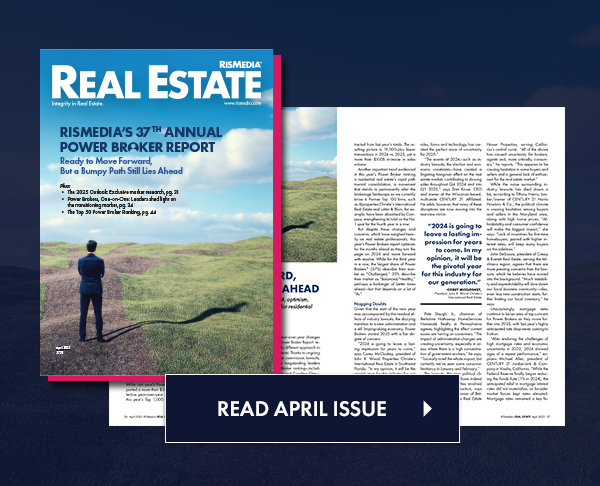As other brokerages facing commission lawsuits have sought out settlements one by one, HomeServices of America, which remains a defendant in several class-action cases and was one of two companies on the wrong side of the Burnett verdict, appears entirely committed to fighting on, as this week it filed a petition to the Supreme Court in a novel attempt to nullify Burnett (and every subsequent copycat).
In a 49-page filing, HomeServices asked the nine justices of the Supreme Court to overrule an appellate decision late last year that allowed Burnett—and consequently, all its copycats—to go forward.
HomeServices Executive Vice President Chris Kelly tells RISMedia that the appeal is “very focused and specific,” and cuts to the heart of a “substantial inconsistency” that transcends these specific cases.
“Our appeal is rooted in the principles of the Federal Arbitration Act, which clearly mandates that arbitration agreements be honored as they are written, including clauses that delegate interpretative authority to arbitrators,” Kelly says via email.
The petition is also just “one of several legal avenues” HomeServices is currently pursuing, according to Kelly, who referred to other post-trial motions filed last month in the Burnett case and a potential appeal to the Eighth Circuit, depending on the outcome of those motions.
Back in August 2023, the Eighth Circuit ruled that contracts that include mandatory arbitration provisions in listing agreements did not prevent recent homesellers from suing big brokerages or franchisors like HomeServices, writing that the company had effectively waived its right to enforce the arbitration agreements by litigating Burnett in court, and interpreting the arbitration clauses as narrowly applying to those who signed it—agents and sellers.
Writing to the Supreme Court, HomeServices is hoping to see that ruling reversed, effectively putting an arbitrator in charge of deciding arbitration, which could potentially upend the Burnett verdict and any other class-action claims.
The company is now the only brokerage defendant still fighting the Burnett verdict, after Keller Williams settled the case for $70 million last week.
“There is no dispute that the plaintiffs agreed to contracts that include mandatory arbitration provisions,” the filing reads. “Those contracts require the arbitrator, not the court, to resolve disputes about the ‘interpretation’ and ‘enforcement’ of the contracts.”
This petition to the highest court appears to be at least somewhat of a Hail Mary by HomeServices, as the Supreme Court only takes up a tiny fraction of these types of petitions.
Additionally, the Eighth Circuit appeared entirely unconvinced that HomeServices has any claims to enforce arbitration, noting that the company admitted it has no direct relationship with any of the plaintiffs who signed a listing agreement, and reiterating that it took 305 days after the Burnett lawsuit was filed before HomeServices brought up the arbitration clauses.
“The Eighth Circuit erred,” HomeServices argued. “The consequences of that error are severe. HomeServices was subjected to a class action jury trial and $1.8 billion verdict in a case that should have been resolved through arbitration, not litigation—much less through a class action, which the plaintiffs waived in the agreements.”
A large portion of HomeServices’ argument before the Supreme Court takes aim at a “disunity” of rulings by lower courts on who gets to decide when, where and how an arbitration clause can be enforced. The Supreme Court, by taking up the case, could resolve that, and prevent “forum shopping,” where plaintiffs can file suits in districts that have favorable precedent for their cases.
“Parties seeking an order to compel arbitration are overwhelmingly likely to be defendants haled into court against their will and therefore subject to the plaintiff’s strategic choice of venue. This is particularly true when, as here, a defendant or its affiliates have entered into similar contracts with potential plaintiffs across the country,” HomeServices pointed out in its filing.
“In the (Burnett) case, the court took upon itself the role of interpreting the arbitration agreement, a decision we believe was contrary to the (Federal Arbitration Act’s) stipulations,” Kelly adds. “By bringing this issue before the Supreme Court, we aim not only to seek a resolution for this specific case, but also to ensure the uniform application of the Federal Arbitration Act nationwide.”
Currently, HomeServices along with several other defendants are sparring with commission-suit plaintiffs on a venue for potential consolidation of these cases, though it is not clear if arbitration is part of the calculations there, as at least two of the cases in question appeared to have moved past that phase. HomeServices, in fact, has opposed consolidation altogether, with Kelly arguing that “there is not sufficient commonality” to justify that move, and that each lawsuit offers “inherently individualized questions.”











